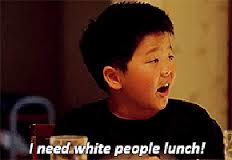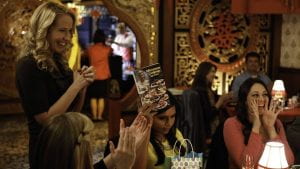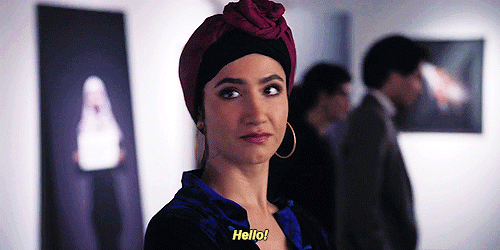A common repeating theme in “Fresh Off the Boat” is the struggle that immigrant families go through when they move to America. The struggle of maintaining their ancestral and individual culture; while at the same time trying to blend in with the American people around them. This comes into the shows forefront during the last episode of the first season of “Fresh Off the Boat.” During the episode, Jessica come to the realization that they had assimilated so far into American culture that their kids were starting to lose perspective of the ancestral culture that they came from. Jessica’s epiphany compounded through several events: Marvin mentioning that they seem like an average American family to him, Evan requesting to know how to say “can you say that in English” in Mandarin, and the fact that she cooked mac and cheese with bacon bits for dinner. In contrast in episode 3 “The Shunning,” Jessica made stinky tofu to take to the block party, a Chinese dish. In fact, what Marvin said was a response to Jessica calling themselves Asian-American with an emphasis on Asian. While it’s the main plot behind episode 13, it has sat in the background for a bit. In an earlier episode, Jessica asked why Eddie couldn’t just a good Chinese boy like Emery or Evan. This is made because Eddie seem to desire to become more like the rest of his classmates; while Emery and Evan were more stereotypical Chinese kids with good grades and Evans even paints some beautiful Chinese inspired art. The most noticeable lost of cultural identify can be seen through the three generations living in the house hold with the grandma being the most tradition and the kids being the most assimilated. In episode 11 “Very Superstitious,” there is a great example of this is the superstitious of the characters. The grandma is seen as being highly religious with incense, Jessica is highly superstitious having typical Chinese superstitions such as the number 4 being bad luck, this is then contrasted with Louis, who has assimilated further into American culture, being only superstitious about not having his jade necklace, and finally the kids aren’t shown to be superstitious, at least not in the traditional Chinese sense, in the episode. This was all use to symbolize how over several generations kids slowly get assimilated into the culture that they live in losing the cultural identity that their parents and grandparents had. This is a very common phenomenon in the real world often happening across three or so generations where the first generation that immigrates to America keeps their own culture passing it down on to their kids that mix it with the culture they live in. Finally, when they have their own kids they past much less of their culture along often with the third generation fully assimilating.

Jessica hopes to hold on to their native language by getting her entire family to only speak in Mandarin when at home.

Eddie wanting to be less Asian and more like his white friends representing the lost of cultural identity over the course of a few generations.






























